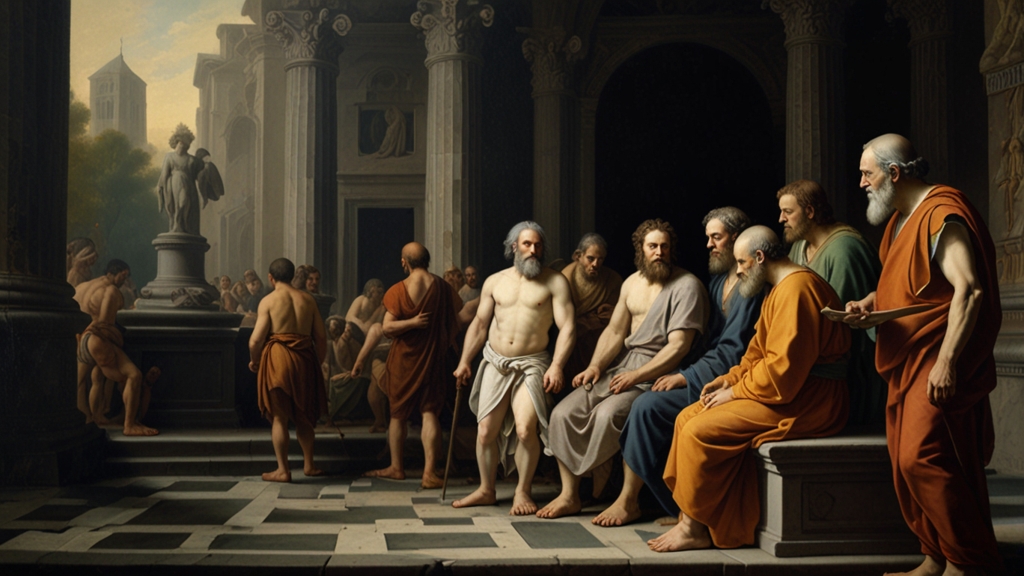The Evolution of Ethics: How History Shapes Our Morality
Ethics, the philosophical study of morality, is a cultural cornerstone that shapes societies, laws, and human interactions. It is an ever-evolving field, molded by historical events, intellectual movements, and shifts in societal norms. To understand the trajectory of our moral compass, we must delve into how history has influenced and transformed our ethical frameworks over time.
Ancient Beginnings: The Birth of Ethical Thought
The roots of ethical thinking can be traced back to ancient civilizations. In Greece, figures like Socrates, Plato, and Aristotle laid the foundation of Western moral philosophy. Socrates introduced the method of questioning prevailing norms, while Plato emphasized virtues and the pursuit of the good life. Aristotle, on the other hand, developed the concept of "eudaimonia," or human flourishing, achieved through virtue.
Meanwhile, in the East, Confucianism and Buddhism were shaping ethical thought. Confucius emphasized the importance of family loyalty, respect for elders, and social harmony, while Buddhism promoted compassion and non-attachment. These early contributions have significantly influenced the ethical principles that continue to guide many societies today.
Medieval Morality: Religion Takes the Helm
"The Divine Command theory, which suggests that morality is directly connected to divine will, dominated medieval Europe, indicating how deeply intertwined religion and ethics were during this period."
During the medieval era, religion became the dominant force in ethical discourse. In the Western world, Christianity was the chief moral authority, guiding both personal and societal conduct. Philosophers like Thomas Aquinas merged Christian doctrine with Aristotelian ethics, forming the basis for much of Western moral thought. His synthesis argued that reason and faith could work in harmony to discover moral truths.
In the Islamic world, scholars like Al-Ghazali and Ibn Rushd (Averroes) were merging Islamic teachings with ancient Greek philosophy, contributing to a rich tapestry of ethical thought. These efforts underscore how religious frameworks profoundly influenced, and were in turn influenced by, philosophical inquiries.
Enlightenment and Secular Morality
The Enlightenment period heralded a significant shift from religious to secular ethics. Thinkers like Immanuel Kant, John Locke, and Adam Smith began to explore morality through the lenses of reason, empiricism, and individual rights. Kant’s deontological ethics proposed that morality is grounded in duty and the categorical imperative, a principle that acts should be performed according to universal maxims.
Utilitarianism, another influential ethical theory arising during this period, was championed by Jeremy Bentham and John Stuart Mill. It posited that the morality of an action is determined by its ability to produce the greatest happiness for the greatest number. This rationalist and consequentialist approach continues to influence contemporary debates in ethics, politics, and economics.
Modern and Postmodern Perspectives
In the 20th century, moral philosophy continued to evolve rapidly. Existentialist thinkers like Jean-Paul Sartre and Simone de Beauvoir emphasized individual freedom and responsibility. Their works questioned absolute moral values, suggesting that humans must create their own ethical frameworks in a seemingly indifferent universe.
"Ethical relativism and moral pluralism emerged as significant theories, arguing that moral truths are not absolute but instead culturally and contextually dependent."
Postmodern ethics further challenged traditional narratives by deconstructing established moral and philosophical systems. Thinkers like Michel Foucault and Jacques Derrida explored how power dynamics and language shape our understanding of morality, pushing the boundaries of ethical thought.
Contemporary Ethical Issues
Today, we face a myriad of complex ethical challenges, from bioethics and artificial intelligence to global justice and environmental sustainability. The historical evolution of ethics provides a diverse toolkit of principles and theories that we can draw upon to navigate these pressing issues. Understanding our moral heritage empowers us to critically address the ethical dilemmas of the modern world.
Conclusion
The evolution of ethics is a testament to humanity’s continual quest to understand and define what is right and wrong. From ancient wisdom to contemporary thought, our moral frameworks are inextricably linked to our historical and cultural contexts. As society progresses, our ethical paradigms will undoubtedly continue to evolve, reflecting the complexities and nuances of the human condition.






